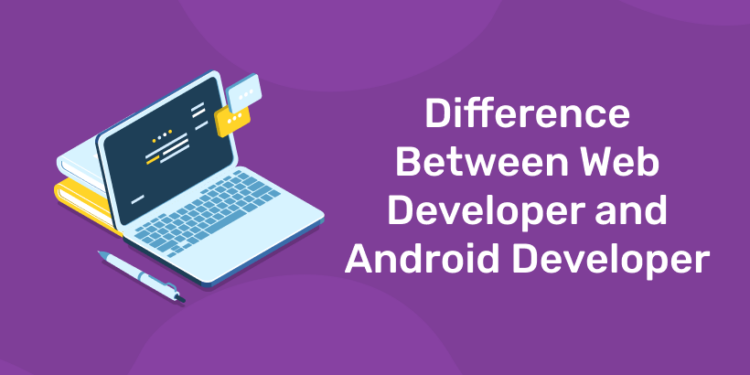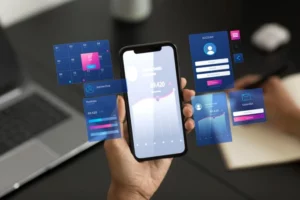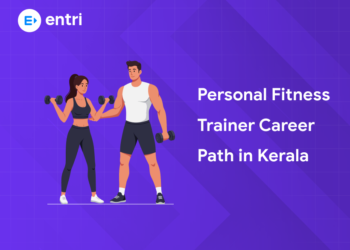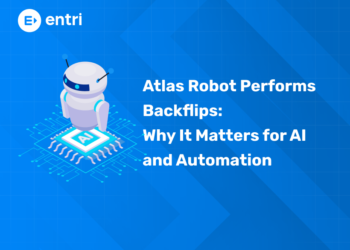Table of Contents
Key Takeaways:
- Android developers build device-specific mobile apps, primarily using Kotlin and Java, with growing use of Jetpack Compose and Flutter.
- Web developers create websites and dynamic web applications using HTML, CSS, JavaScript, and popular frontend/backend frameworks.
- Cross-platform approaches unify mobile and web development, with tools like Flutter reducing separate codebases.
- Both careers offer strong salaries, job security, and opportunities in emerging tech domains globally.
- Personal interest in mobile device ecosystems versus web technology versatility should guide career decisions.
Introduction
In today’s fast-paced digital world, technology shapes how we connect, work, and live every day. Whether you’re scrolling through an app on your smartphone or browsing a website on your laptop, developers play a vital role in creating those seamless digital experiences. For many aspiring tech enthusiasts, choosing a development career path can be both thrilling and confusing. Should you become a web developer focusing on websites and web applications? Or should you specialize as an Android developer crafting apps for the world’s most popular mobile platform?
This decision goes beyond just writing code — it’s about understanding the differences in skills, tools, career opportunities, and future trends. In 2025, both fields are evolving rapidly, with new frameworks, technologies, and market demands shaping their landscapes. This comprehensive guide breaks down the distinctions between Android and web development, helping you make an informed and personal choice aligned with your passions and professional goals.
What is an Android Developer?
1: Which of the following is a JavaScript framework/library?
An Android developer is a software professional who specializes in building applications for devices running the Android operating system. Android dominates about 70% of the global smartphone market and powers devices not only including phones but also tablets, smart TVs, watches, and even cars. This broad ecosystem offers Android developers a vast playground to create versatile and interactive apps for daily use.
Technically, Android apps are mainly written in Kotlin and Java, supported by Google’s official development environment, Android Studio. The modern wave in Android development embraces Jetpack Compose, a declarative UI toolkit simplifying UI design, and Flutter, a cross-platform framework allowing developers to build natively compiled apps from a single codebase for multiple platforms.
Android development relies heavily on device-specific APIs and features like cameras, sensors, GPS, and biometrics to enrich user experience. Developers often integrate cloud services such as Firebase for backend functionalities like authentication, real-time databases, and push notifications. Android apps can work fully offline or online, depending on design, making them flexible for different user scenarios.
Tip: Learning Flutter can expand your reach beyond just Android and iOS, enabling you to build both mobile apps and web apps with the same skills — a highly valuable competency in 2025’s app development landscape.
🚀 Start Coding Today! Enroll Now with Easy EMI Options. 💳✨
Get Hired as a Full-Stack Developer: Master the Skills Employers Are Looking For!
Start Learning With EMI Payment OptionsWhat is a Web Developer?
A web developer builds websites and web applications accessible through web browsers on any device — desktops, laptops, tablets, or smartphones. Their work involves crafting the structure, styling, and interactive elements of websites to ensure smooth, fast, and visually appealing user experiences regardless of screen size or device type.
Web development splits broadly into frontend (client-side) and backend (server-side). Frontend developers use HTML to structure content, CSS to style it, and JavaScript plus frameworks like React, Angular, or Vue.js to create dynamic user interfaces. Backend developers manage databases, server logic, and APIs using languages such as Node.js (JavaScript runtime), Python, PHP, Ruby, or Java.
The rise of modern frameworks and cloud services allows web developers to build Progressive Web Apps (PWAs) — web applications that behave like native apps, work offline, and deliver push notifications. Web development is also experiencing growth in headless CMS, serverless architectures, and API-driven development, offering diverse roles and technical challenges.
Tip: Full-stack developers who master both frontend and backend technologies gain the most versatility and are highly sought after in the 2025 job market, opening doors to more complex projects and leadership roles.
Key Differences Between Android Developer and Web Developer
| Aspect | Android Developer | Web Developer |
|---|---|---|
| Platform | Android devices such as smartphones, tablets, smart TVs | Websites and web apps accessible on any device |
| Core Languages | Kotlin, Java, XML, Jetpack Compose, Flutter | HTML, CSS, JavaScript, React, Angular, Vue.js, Node.js |
| Development Tools | Android Studio, Emulators, Firebase | VS Code, WebStorm, Chrome DevTools, GitHub |
| User Experience Focus | Optimizing for mobile usability and hardware integration | Creating responsive, flexible designs for cross-device |
| Connectivity | Can work offline or online depending on app design | Requires internet for most web applications |
| Monetization | In-app purchases, ads, subscription models | Advertisements, e-commerce platforms, subscriptions |
| Learning Curve | Steeper due to platform-specific APIs and device testing | Easier to start with widely available learning resources |
| Career Demand | Growing worldwide mobile user base | Constant demand for websites and web apps across sectors |
| Salary Range (India) | ₹4 lakh to ₹8+ lakh per annum | ₹3.5 lakh to ₹9+ lakh per annum |
Emerging Trends in 2025
As the tech industry accelerates, several trends shape both Android and web development, blurring lines between the two while opening new possibilities.
- Cross-Platform Development: Tools like Flutter and React Native let developers write once and deploy on Android, iOS, and the web. This greatly reduces development time and resources while widening reach.
- Progressive Web Apps (PWAs): PWAs offer web experiences that are fast, reliable, and installable on devices. They work offline and provide native-app-like engagement, ideal for users hesitant to download apps.
- AI and Machine Learning Integration: Developers are embedding AI features like chatbots, personalized recommendations, and voice recognition directly into apps and websites.
- Cloud-Backed Development: Services like Firebase, AWS Amplify, and Azure provide scalable backend infrastructure, authentication, analytics, and real-time databases, enabling MVPs and enterprise apps alike.
- Emphasis on Accessibility and Performance: With more users relying on mobile and low-bandwidth connections, optimizing app speed and usability for all abilities is a top priority.
🚀 Start Coding Today! Enroll Now with Easy EMI Options. 💳✨
Get Hired as a Full-Stack Developer: Master the Skills Employers Are Looking For!
Start Learning With EMI Payment OptionsWhy Choose Android Development?
If building powerful, device-integrated apps excites you, Android development is a compelling path. It provides the opportunity to impact billions worldwide using one of the largest technology ecosystems. You’ll work with advanced hardware features and innovative UI frameworks, solving unique challenges in mobile UX.
The mobile market’s growth shows no sign of slowing, fueled by increased smartphone penetration in emerging markets and the proliferation of smart devices. Careers in Android development are supported by robust community resources, official Google documentation, and continuous platform advancements.
Because mobile apps often require niche domain knowledge—such as gaming, health, banking, or IoT—Android developers can specialize deeply while working in diverse industries.
Why Choose Web Development?
Web development offers flexibility unmatched by many tech fields. Since websites are essential for businesses, organizations, and public services, web developers enjoy steady demand and varied work scopes from simple sites to complex cloud apps.
The skillset allows entry into freelancing, entrepreneurship, or corporate roles. Plus, learning web technologies lays a strong foundation for understanding software engineering principles generally.
The rapid evolution of frontend frameworks, backend languages, and cloud platforms means web developers always have fresh skills to pursue and innovate with. Web development also facilitates creativity—balancing design aesthetics with cutting-edge interactivity.
Entri’s Full Stack Developer Course
Interested in a comprehensive learning journey that equips you with both frontend and backend web development skills? Entri’s Full Stack Developer course empowers you to build real-world applications using HTML, CSS, JavaScript, React, Node.js, Express, and databases like MongoDB. The course is designed with practical modules, live projects, and expert support tailored for beginners and professionals aiming to thrive in the evolving tech landscape of 2025. Whether starting fresh or enhancing your skills, this course prepares you for a successful career in web development and beyond.
Conclusion
Deciding between Android development and web development as a career is a personal and strategic choice shaped by your interests and the evolving tech ecosystem of 2025. Both paths offer incredible opportunities to create impactful digital experiences and secure promising jobs worldwide. Focusing on continuous learning, building a strong portfolio, and understanding industry trends is essential for success in either field. To kickstart your journey with confidence, consider enrolling in Entri’s Full Stack Developer course — a practical, up-to-date program designed to help you master essential skills and launch a rewarding development career. Your future as a skilled developer begins now.
🚀 Start Coding Today! Enroll Now with Easy EMI Options. 💳✨
Get Hired as a Full-Stack Developer: Master the Skills Employers Are Looking For!
Start Learning With EMI Payment OptionsFrequently Asked Questions
Which programming languages should I start with for Android or web development?
For Android, start with Kotlin as it’s Google’s preferred language, along with Java basics. For web development, learn HTML, CSS, and JavaScript first, then explore frameworks like React or Angular.
Can I switch between Android and web development later in my career?
Yes. Many developers transition between these fields, especially if they learn cross-platform tools like Flutter or React Native that bridge mobile and web development.
What are the job prospects globally for Android and web developers?
Both have strong global demand. Android developers are sought for mobile-first markets, while web developers keep the digital presence running across industries worldwide.
How important is a portfolio for these careers?
Extremely. Showcasing real apps or websites you’ve built demonstrates skills to employers or clients far better than just certifications.
Are coding bootcamps and courses effective for learning these skills in 2025?
Yes, especially those providing hands-on projects, mentorship, and updated curricula aligned with current technologies and job market needs.















